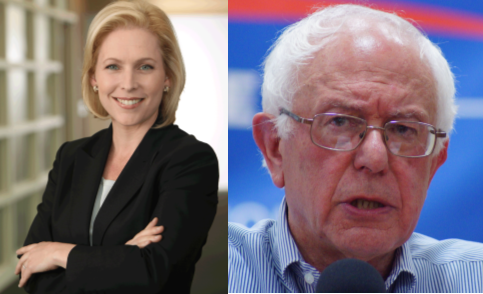Organization Trends
Senate to Consider Partisan Anti-Speech Resolution


Forced disclosure of donors by the government is in the news again. This particular controversy began over the summer, when the IRS made a welcome change to its reporting rules for nonprofits by announcing it would no longer require most types of nonprofits (except the subset of nonprofits whose donors can deduct donations from their personal income taxes) to file with the IRS a list of their substantial donors and the donors’ addresses.
But now, 42 U.S. Senators, all of whom are members of the Democratic Conference, led by Jon Tester (D-Montana) and including Bernie Sanders (I-Vermont), Kirsten Gillibrand (D-N.Y.) and four incumbents who lost re-election in November, have made a motion to overturn the IRS’s decision under the Congressional Review Act (a law allowing Congress to pass a joint resolution to “disapprove” of a regulation and block it, subject to a Presidential veto). The Congressional Review Act is notable as a source of legislative activity early in Trump’s term: Republicans used it to roll back numerous Obama-era regulations and rules in 2017.
(For more on the IRS rule, see Episode 33 of the Influence Watch Podcast, on which CRC spoke with Luke Wachob of the Institute for Free Speech on this issue.)
At issue is not a matter of disclosure per se: The list of donors and addresses (titled “Schedule B” on nonprofit tax returns) is supposed to be kept confidential under federal law. The problem? Too often, the information doesn’t remain confidential—either the IRS, or state governments, or an organization’s own accountants can slip up (or worse still, deliberately leak), “doxxing” financial supporters. Even if rogue or incompetent officials fail to publicize the documents, they can still be abused: The Pacific Legal Foundation, a center-right public-interest law firm, has alleged that a demand by California Attorney General Xavier Becerra (D) that the right-of-center Americans for Prosperity hand over an un-redacted Schedule B could result in the creation of an “enemies list.”
The most notorious case of the IRS improperly releasing the donor list befell the National Organization for Marriage (NOM), a social-conservative advocacy group opposed to state recognition of same-sex marriages. In 2008, an IRS employee disclosed the un-redacted donor list to a person claiming to be a member of the media, who then passed it on to the gay-rights group Human Rights Campaign. While it was never proven that the disclosure was intentional, the government still had to pay NOM a $50,000 settlement. Other (ostensibly inadvertent) disclosures have outed donors to the Republican Governors Association Public Policy Committee, among other groups.
Even if one lays aside all the abuses these disclosures have allowed, requiring that nonprofits disclose their donors infringes the well-defined First Amendment freedoms of anonymous speech and anonymous association. The Supreme Court famously affirmed the right to anonymous association in the case NAACP v. Alabama. That 1958 decision held that the civil rights group could not be forced by the state’s segregationist government to hand over its membership rolls. As Justice John Marshall Harlan II, writing for the court, presciently noted:
It is not sufficient to answer, as the State [of Alabama] does here, that whatever repressive effect compulsory disclosure of names of petitioner’s [NAACP’s] members may have upon participation by Alabama citizens in petitioner’s activities follows not from state action but from private community pressures. The crucial factor is the interplay of governmental and private action, for it is only after the initial exertion of state power represented by the production order that private action takes hold.
In the NOM case, the leak of donor information to the press was used to harass and publicly hound social conservatives who had supported the organization. For its part, the IRS has asserted that it does not use or need the donor list to administer the tax laws. Given that absence of tax-administrative need, the legal precedents against disclosure, the principles of free association, and the history of abuses of the donor list, it’s understandable that the IRS stopped demanding it.


